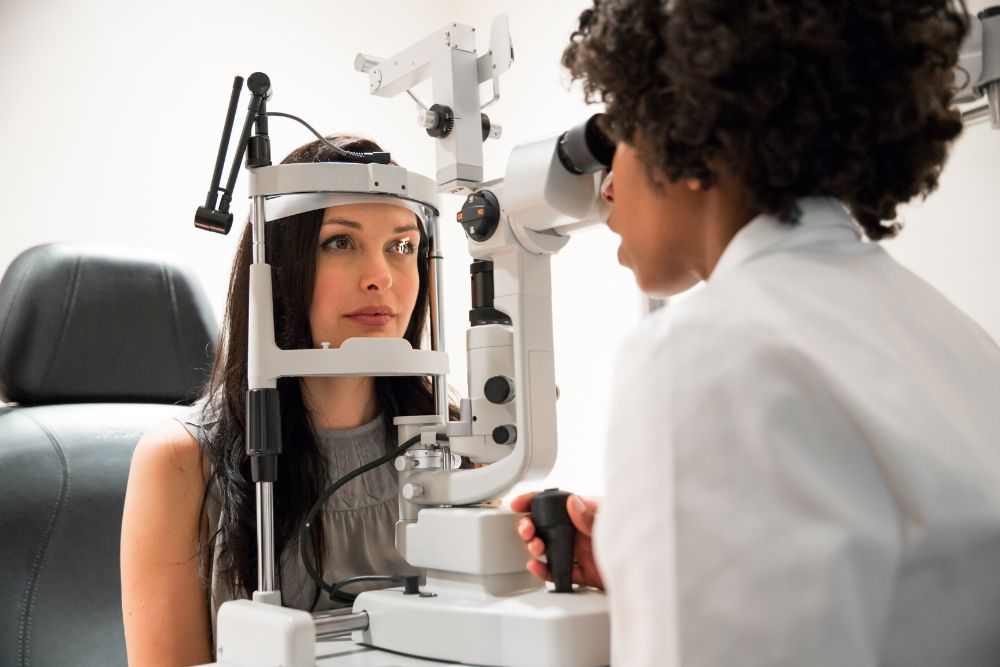The Importance of Regular Eye Exams for Detecting Macular Disorders

The retina’s center, the macula, is responsible for central vision. Susceptible to multiple disorders, regular ophthalmologic exams provide the means for early detection of any macular conditions. Treatment can then be quickly started, helping to slow or stop disease progression, while preserving your vision. You can also ensure your macular well-being by practicing proper eye care and avoiding common risk factors.
Macular Makeup: What You Should Know
The macula is a yellow-pigmented round dot in the center of the retina. The macula’s center, the fovea, has the eye’s highest level of visual acuity, the ability to distinguish objects at a given distance. The macula helps you see small details and focus on specific aspects, allowing “close-up” activities, like reading or seeing faces. It consists of photoreceptor cells working together to give a clear, accurate picture. Rods, which process black and white light, help you see at night and in dim light. Cones, which process color and make up most of your usual vision.
The Importance of Regular Eye Exams
If any macular or retinal changes suddenly occur, you may require immediate ophthalmologic care and treatment. The sooner diagnosed, the sooner treatment can be initiated. Ultimately, your doctor will have a higher likelihood of halting any disease progression, while preserving your vision and quality of life. Regular ophthalmologic exams are also essential for maintaining your macular health.
Typical Macular Conditions and Injuries
Age-related macular degeneration (AMD)
Age-related macular degeneration (AMD) involves macular tissue becoming damaged and wearing down over time, leading to central vision loss. The more advanced wet (or exudative) form. involves neovascularization, in which fragile blood vessels grow under the retina. They easily break, leaking blood and other fluids into the macula, resulting in swelling, central vision problems, and vision loss.
Macular Edema
There are multiple forms of macular edema (swelling). The most common is diabetic macular edema, a complication of diabetic retinopathy. Edema may also result from other retinal conditions, like AMD or uveitis, taking certain medications, or eye surgery. It can affect central vision, and if untreated, lead to irreversible macular damage and permanent vision loss.
Vein or Artery Occlusions
Vein or artery occlusions, blockages in blood vessels, including within the retina, can cut off the essential supply of oxygen-rich blood. Occlusions can lead to macular edema, central visual concerns, unhealthy new blood vessel growth, irreversible macular damage, and permanent vision loss.
Macular Holes and Macular Puckers
Macular holes are openings generally caused by macular stretching or pulling. Macular puckers, or epiretinal membranes, are thin, semi-transparent scar tissue layers growing over the macula. This tissue spreads and contracts, “puckering” or wrinkling the retina. While both conditions may not cause total vision loss, surgery may be required.
Macular Risk Factors and Preventive Techniques
While different disorders can affect your macula, certain risk factors are common. For some, you may have little control, including:
- Aging, which contributes to AMD, retinal artery and vein occlusions, and macular holes and puckers.
- Having a family history, as with AMD.
- Having certain conditions – Myopia (nearsightedness) is associated with macular holes, while light-colored irises are linked with AMD, and artery and vein occlusions.
As some risk factors can be managed, you should consume a healthy diet, engage in regular physical activity, and avoid harmful behaviors, like smoking. You should also protect your eyes from harmful ultraviolet (UV) rays exposure with sunglasses and hats. Various underlying conditions are associated with AMD, and vein and artery occlusions. You should maintain healthy blood pressure, cholesterol, and weight. With DME, proper diabetes management is vital, including regularly taking insulin and other medications, and maintaining healthy glucose levels.
Safeguard Your Macular Health with Regular Eye Care
As the macula enables central vision, any related disorders may be very serious. Regular ophthalmologic exams allow any conditions to be quickly diagnosed and treated, slowing or stopping any damage and preserving vision. To schedule a macular exam, please contact us for an appointment.
